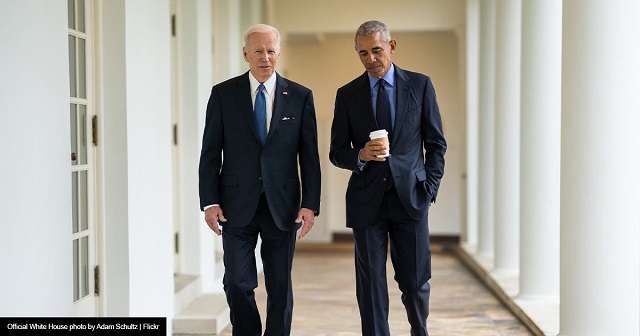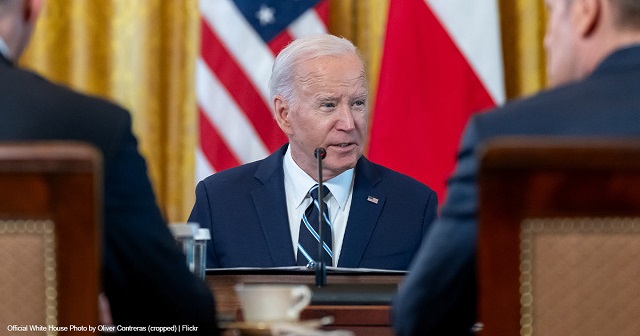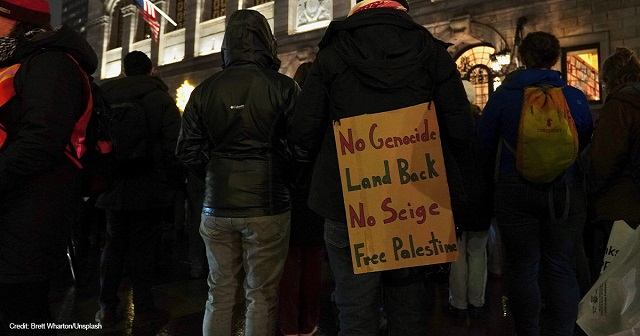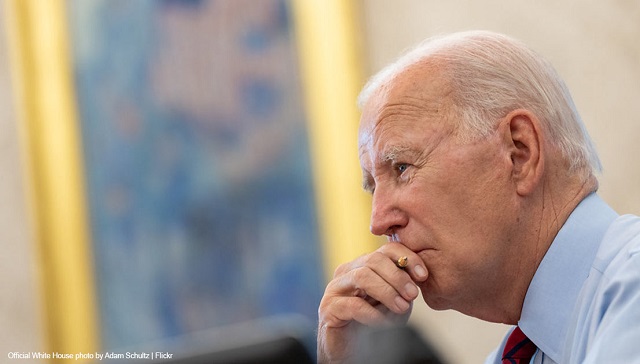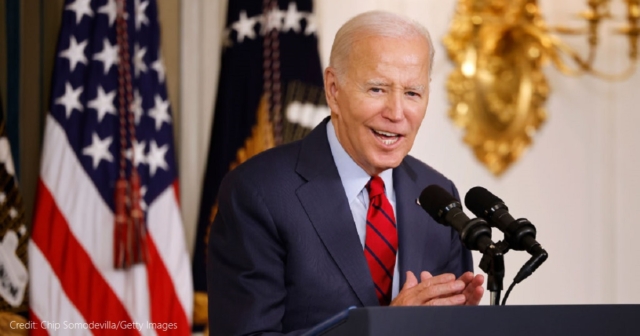
An emerging stream of thought in American politics questions America’s longstanding international commitments because it doesn’t remember why we made them in the first place. Why is America supplying Ukraine with weapons in its war against Russia? What is America’s interest — as distinct from a Jew’s or Christian’s interest — in securing Israel’s victory over Hamas? Would America really put its own blood and treasure on the line to defend the sovereignty of faraway Taiwan?
When taken in isolation, these commitments may seem arbitrary. But understanding the history of American foreign policy can put them into their proper context.
America and Freedom
Perhaps the most fundamental aspect of American foreign policy is the character of the American people. America is founded on free ideals. These include ironclad protections for free markets and free enterprise, a primary source of American strength. America’s strong and open economy means American producers can often supply goods to new markets — when they can find them.
Enabling American merchants to freely buy and sell in overseas markets has remained a core objective of American foreign policy throughout most of American history. This was true when Boston merchants loaded bales of tobacco and cotton onto wooden sailing ships bound for Europe. It remains true as Coca-Cola and Apple market soft drinks and iPhones to the interior parts of Africa. The Washington administration and the Truman administration had drastically different foreign policies, but they shared this in common.
In fact, the young federal republic fought its first wars to defend the freedom of American merchant shipping. In the 1790s, America’s first post-revolution naval actions were to defend American sailors being pressed into service in the British and French navies. In 1801, American marines assaulted “the shores of Tripoli” to end Mediterranean piracy against American vessels. Later, an American squadron in 1853 threatened military action against Japan to force that hermit kingdom to open its ports to American trade.
Non-Intervention
Throughout most of the 1800s, America was able to achieve its goal of protecting international trade while largely avoiding foreign entanglements because a more powerful nation had the same goal. Great Britain, a banking powerhouse, also pursued a merchant-focused foreign policy — mostly by trading with colonies it established around the globe — and it had the world’s most powerful navy to enforce its will. This left America largely free to settle the giant continent that lay before it.
The main exception to American non-intervention in the 1800s — after the foolish war of 1812, that is — was the Monroe Doctrine. As South and Central American colonies declared independence from European powers in the 1810s and 1820s, U.S. President James Monroe announced that the U.S. would oppose any effort by European powers to establish or re-establish a colony in the Americas. This policy was designed to keep the world’s most powerful militaries from establishing a base on America’s doorstep, but it also allowed the fledgling new nations to learn how to govern themselves without fear of imminent invasion (admittedly, many of them performed poorly). In other words, it was America’s first attempt at creating other nations like ourself.
From the 1890s through the 1910s (the Progressive Era), American presidents embraced a more muscular foreign policy. They fought and won a war against a European power (Spain), created the nation of Panama to build a canal, and elbowed America into World War I to influence the post-war settlement. The war elevated America to an international status close to that of the great powers, mostly because these were exhausted and devastated from years of hard fighting. However, the American people ultimately rejected the post-war League of Nations negotiated by President Wilson, and once again withdrew from foreign concerns during the Great Depression.
World War II
Then came World War II, which profoundly changed America’s relationship with the rest of the world. America was reluctant to interfere in foreign affairs and did not join in the war until we were attacked. But, once America was roused, our economy demonstrated just how powerful it was, as we basically outproduced our way to victory against Japan and Germany.
America emerged from World War II with only one close rival, the Soviet Union. Previous powers, such as Great Britain, France, and Germany, were devastated by the war. This role forced the U.S. to engage more actively in foreign relations. In particular, a war-weakened Britain no longer stabilized world finances or patrolled the world’s oceans; now America’s central bank and Navy would have to perform these functions if we were to protect our own trading interests.
America deployed the Marshall Plan to rapidly rehabilitate Western Europe, and even our recent enemies, Germany and Japan. Partly, this investment corrected the mistakes made after World War I, which left Germany humiliated, weakened, and eager to avenge itself in another war. Partly, this investment helped to fortify a bulwark against the Soviet Union, which was rapidly gobbling up eastern Europe. But partly, this investment helped to stimulate America’s own economy, because we needed trading partners wealthy enough to buy our goods.
America and other nations also sought to prevent a repeat of World War II, which began with a strongman and his military machine gobbling up smaller, weaker neighbors one after another, while other nations were reluctant to take responsibility to stop him. To that end, America and other nations formed the United Nations in 1945, with a resolve “to save succeeding generations from the scourge of war.”
The U.N. Charter’s very first article defined its purposes: “To maintain international peace and security … To develop friendly relations among nations … To achieve international co-operation in solving international problems … To be a centre for harmonizing the actions of nations in the attainment of these common ends.”
Article 2 of the U.N. Charter set forth additional principles to govern international behavior. It affirmed “the sovereign equality of all its Members,” required member nations to “settle their international disputes by peaceful means,” forbade “the threat or use of force against the territorial integrity or political independence of any state,” and required member nations to make sure that non-member nations acted according to these principles.
This Charter is worth noticing carefully. Granted, the U.N. has many shortcomings and outright failures. It seethes with anti-Semitism, overextends its authority into the affairs of sovereign nations, is often taken captive by the worst human rights abusers, and often fails to have any positive effect when actual crises arrive. Granted, too, the Charter exudes an overly optimistic view of international relations that lacks realism.
But notice the Charter’s goals: maintaining international peace, acknowledging national sovereignty, and preserving the territorial integrity of nation states against aggression by stronger, more powerful neighbors. These principles create conditions where international trade can flourish. They also enable a nation to handle its own affairs without undue interference by outsiders. These are the conditions American foreign policy has sought to achieve throughout its entire history. This is the Monroe Doctrine made global.
Also significantly, the principles set forth in this Charter were emphatically not those of the Soviet Union or other warmongering dictators. Before World War II, Joseph Stalin had eagerly partnered with Hitler to divide Poland between them. After World War II, the Soviet Union continued to dominate all the nations in its sphere of influence — nations behind what came to be known as the Iron Curtain. It took decades before East Germany, Czechoslovakia, or Romania saw political freedom again. Additionally, the Soviet Union was constantly trying to export its toxic ideology — to Nicaragua or Cuba, for instance — or invade other countries — but more on that shortly.
In other words, although the U.S. and the U.S.S.R. were the two global superpowers, the international union they formed reflected American values far more than Soviet ones. Partly, this was because communists are willing to say nice things and then do terrible things. But partly, this represented a moral victory for the United States. The world order that took shape after World War II was an American one.
The post-World War II American World Order has endured for nearly a lifetime. America has profitable and sophisticated trade relationships with countries in Europe, eastern and southern Asia, South America, Africa, and the Pacific. America has developed and deepened security relationships with more than 50 nations on every continent. After roughly 45 years, America’s only peer rival, the Soviet Union, collapsed, leaving the U.S. in the rare position of a global hegemon. This has been the American World Order, and America has, on average, benefited by it.
Sometimes, the U.N. has positively helped confront challenges to the American World Order. Soviet- and Chinese-backed communists attempted to invade Korea in the 1950s, but a U.N. coalition fought them to a draw. Thus illegally annexed, the northern part of Korea remains an international pariah, while the southern part of Korea flourishes among the world’s most developed economies. In 1990, Iraqi dictator Saddam Hussein overran his smaller neighbor Kuwait. Again, a U.N. coalition forced him to relinquish the territory he conquered.
At other times, the U.S. has had to confront the challenge on its own or with a smaller group of allies — with varying degrees of success. It countered the U.S.S.R.’s invasion of Afghanistan in the 1980s by arming local fighters. It has confronted various coups at various times, and it responded to the growing threat of international terrorism by experimenting with regime change of its own. Perhaps its greatest blunder was the failed attempt to prevent a communist takeover of Vietnam, which thrust the nation down into a decade of despair and retreat. Nevertheless, the fundamental structure of the world order remained favorable to American interests, even at the moments when America did not seem to benefit thereby.
Over the past 15 years, a fundamental principle of the American World Order has come under increasing scrutiny — the notion that every nation has a fundamental right of sovereignty over its territory — all its territory. In 2008, Russia, the largest successor to the Soviet Union, invaded its smaller neighbor Georgia; to this day, Russian troops occupy two breakaway regions of Georgia, which only Russia recognizes as a sovereign nation. In 2014, Russia invaded another neighbor, Ukraine, and claimed to “annex” the southern, oil-rich Crimean peninsula and eastern, industrialized Donbas region — a blatant violation of Ukraine’s territorial integrity. In 2015, an Islamist insurgency dubbing itself the “Islamic State” captured and controlled large swaths of territory in Iraq and Syria that had been destabilized by civil war and the withdrawal of U.S. troops — although its territorial gains were largely wiped out by 2019.
That brings us up to recent history, which has seen further challenges to the American world order and to American world supremacy. In 2022, Russia extended its invasion of Ukraine, first attempting to conquer the entire country, and then revising its goals towards solidifying additional territorial gains in the south and east. In 2023, Islamist militants sponsored by Iran launched a war against Israel, publicly declaring their intention to wipe it off the world map.
On the other edge of Asia, communist China continues its aggressive expansion across the South China Sea and its provocative behavior towards Taiwan, which it falsely claims is not an independent nation but rather a breakaway province. While China has not actually launched an invasion, foreign policy observers widely agree that it seems prepared to do so and is closely watching America’s response to other global hotspots.
So, how do these various conflicts relate to America’s core interests? America benefits from a peaceful world order that allows international trade to flourish. Ever since World War II, America has sought to enforce a global norm of national sovereignty and territorial integrity as a means to prevent global conflicts, which could disrupt America’s trade interest — not to mention upset nations’ self-determination. America’s authoritarian rivals are increasingly testing those norms.
If America backs away from its commitment to the territorial integrity and national sovereignty of all nations, our global adversaries will interpret this as a license to further acts of aggression, which will further undermine the (relatively) peaceful world order that is structured in America’s interest. This is the context for conflicts in both Ukraine and Israel, the nervous stalemate in Taiwan, and in other global hotspots that could quickly unravel if America retreats from its commitment to its own interests.
AUTHOR
Joshua Arnold is a senior writer at The Washington Stand.
RELATED POSTS ON X:
EDITORS NOTE: This Washington Stand column is republished with permission. All rights reserved. ©2023 Family Research Council.
The Washington Stand is Family Research Council’s outlet for news and commentary from a biblical worldview. The Washington Stand is based in Washington, D.C. and is published by FRC, whose mission is to advance faith, family, and freedom in public policy and the culture from a biblical worldview. We invite you to stand with us by partnering with FRC.
